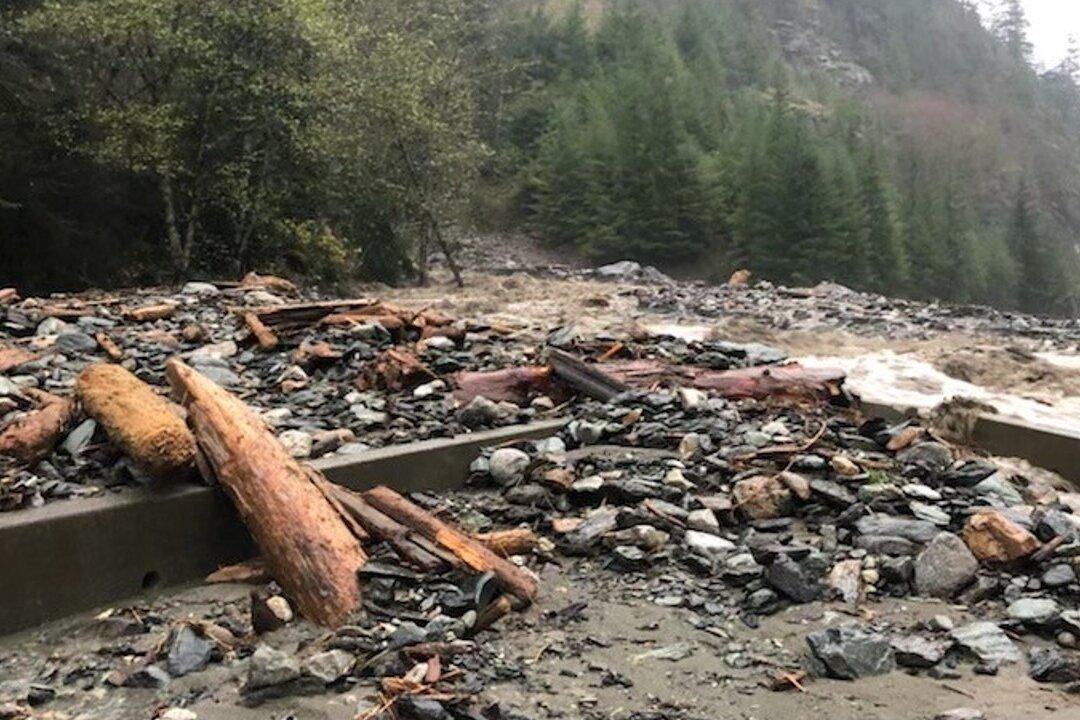OTTAWA—Search teams using dogs started looking for people whose cars may have been buried in landslides across the Canadian province of British Columbia on Tuesday, as the country’s two biggest railways reported serious damage to their networks.
The storms, which started on Sunday, wrecked roads in the Pacific province, forced an oil pipeline to close and limited land access to Vancouver, the city with Canada’s largest port.





